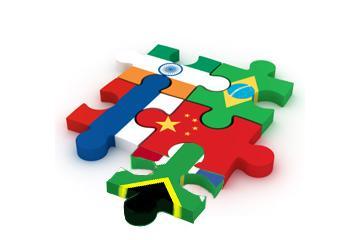
BRICS represents the first important non-Western global initiative in the post-Cold War world. It brings together five major emerging powers located in different parts of the world — Brazil, Russia, India, China, and South Africa, with the first letter in their names making up the acronym BRICS. In fact, the BRICS grouping can be called the R-5, after the names of its members’ currencies — the real, ruble, rupee, renminbi, and rand.
Yet, despite the forward movement achieved at its recent New Delhi summit, BRICS remains a concept in search of a common identity and institutionalised cooperation. Brazil, Russia, India, China, and South Africa are still searching for a common ground that can help turn their initiative into a weighty geopolitical grouping. The risk is that without clearly defined objectives and an agreed plan of action, BRICS will be weighed down by internal contradictions, as symbolised by its members’ starkly varying political systems, economies, and national ambitions.
The disparate nature of the group’s membership — bringing together the world’s largest autocracy and democracy, as well as commodity-exporting and resource-hungry economies — has prompted cynics to dismiss BRICS as an acronymic ingenuity without substance. To its protagonists, however, BRICS is a product of the ongoing global power shifts, and has the potential to evolve into a major instrument in shaping the architecture of global governance. As a unified grouping, BRICS could play midwife at a time the qualitative reordering of power symbolises the birth-pangs of a new international order.
On burning international geopolitical issues like Iran and Syria, BRICS actually stands out as the voice of moderation and caution, seeking to provide the balance to the interventionist impulse of Western powers. The BRICS leaders, in their joint declaration in New Delhi, cautioned that, “The situation concerning Iran cannot be allowed to escalate into conflict, the disastrous consequences of which will be in no one’s interest. Iran has a crucial role to play for the peaceful development and prosperity of a region of high political and economic relevance, and we look to it to play its part as a responsible member of the global community. We are concerned about the situation that is emerging around Iran’s nuclear issue.”
But as the recent United Nations human-rights resolution on war crimes in Sri Lanka showed, the BRICS grouping is badly split on other issues. The group’s main economic giant, China, is also the political outlier that rejects the very concept of national elections and is ever ready to advance its commercial and strategic interests by coming to the succor of a fellow human rights-abusing state.